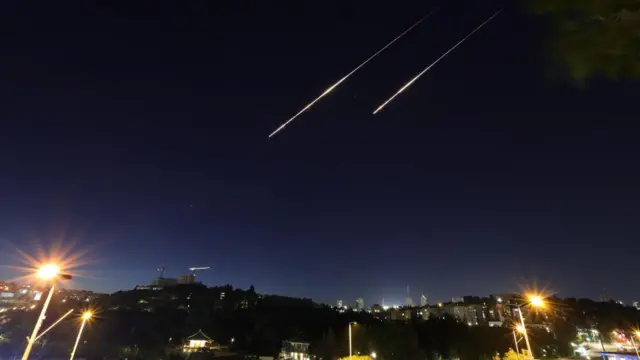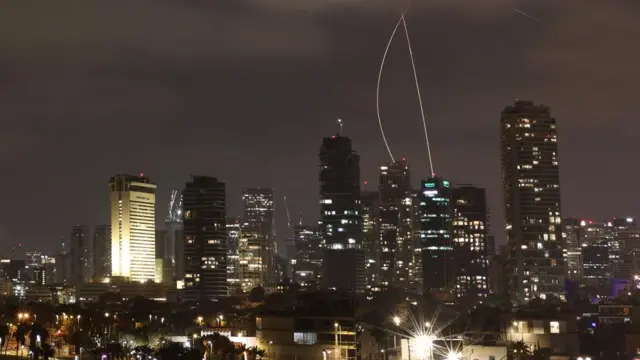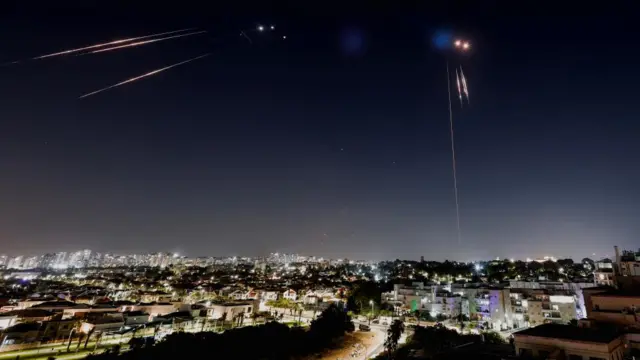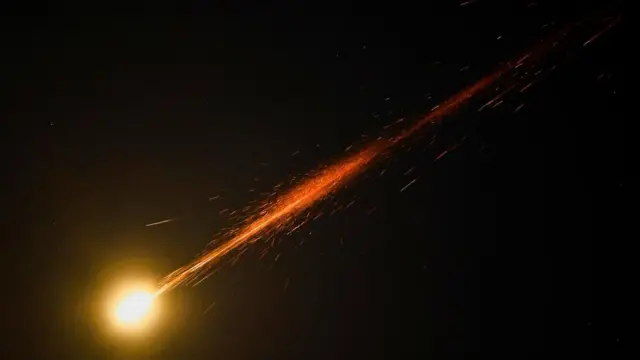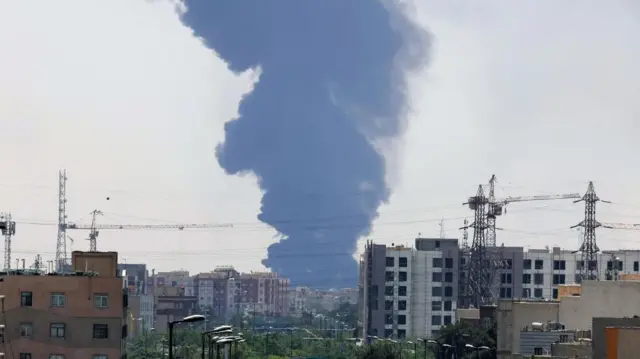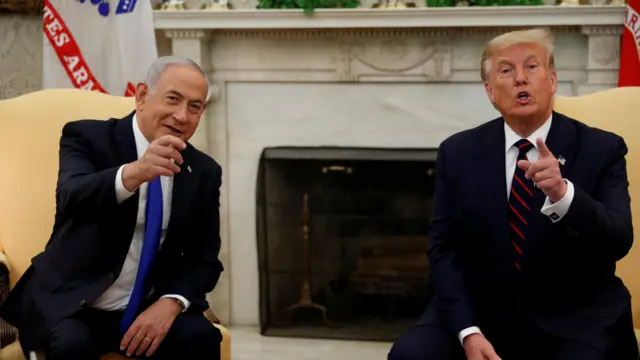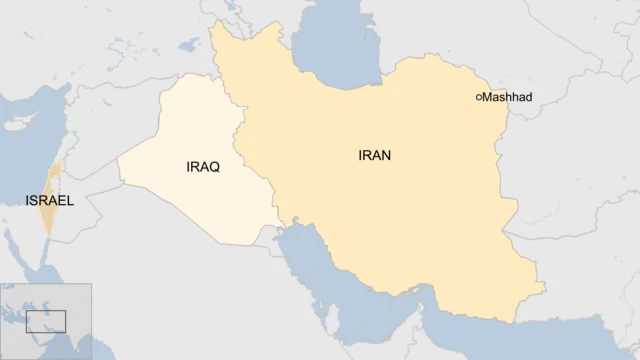Israelis speak of shock at destruction, as Iranians try to flee Tehranpublished at 20:08 BST 15 June
Sebastian Usher
Middle East regional editor
Another wave of missiles has been fired at Israel from Iran this evening, with reports that a building in Haifa has been hit.
Israelis have been coming to terms with the images of a devastated residential building in the coastal city of Bat Yam where seven people, including two children, were killed in an earlier strike.
Residents there told the BBC of their shock at seeing the destruction that Iran can wreak, despite the protective shield of the Iron Dome air defence system.
In Iran, people have been snarled up in huge traffic jams as they try to get out of Tehran, which is increasingly becoming a target of Israel's relentless bombardment - and one that is intensifying by the day.
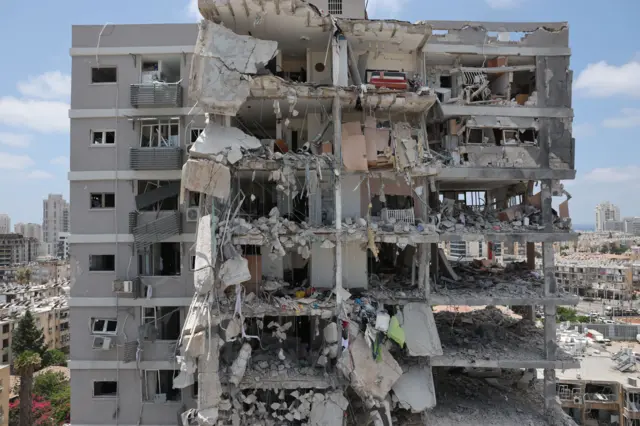 Image source, ABIR SULTAN/EPA-EFE/Shutterstock
Image source, ABIR SULTAN/EPA-EFE/ShutterstockThis residential building in Bat Yam was severely damaged by an Iranian strike

